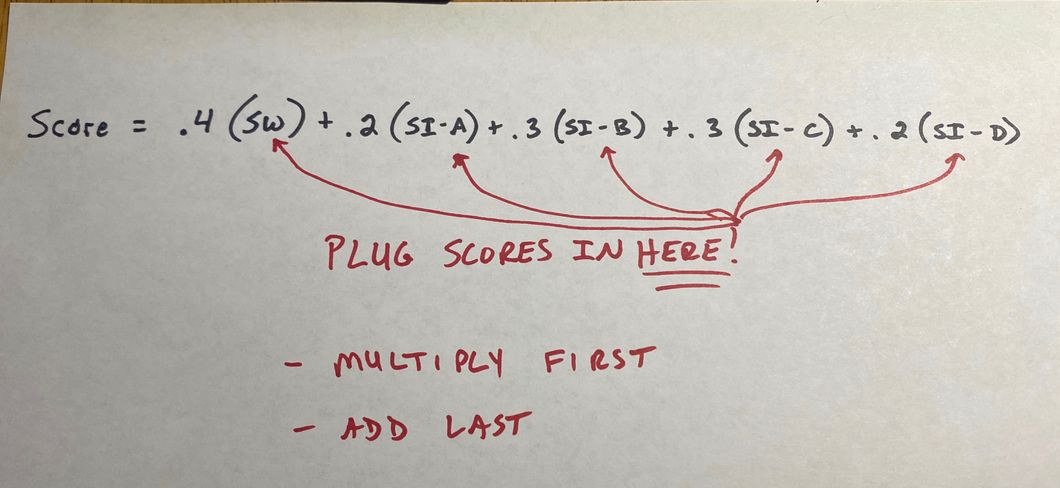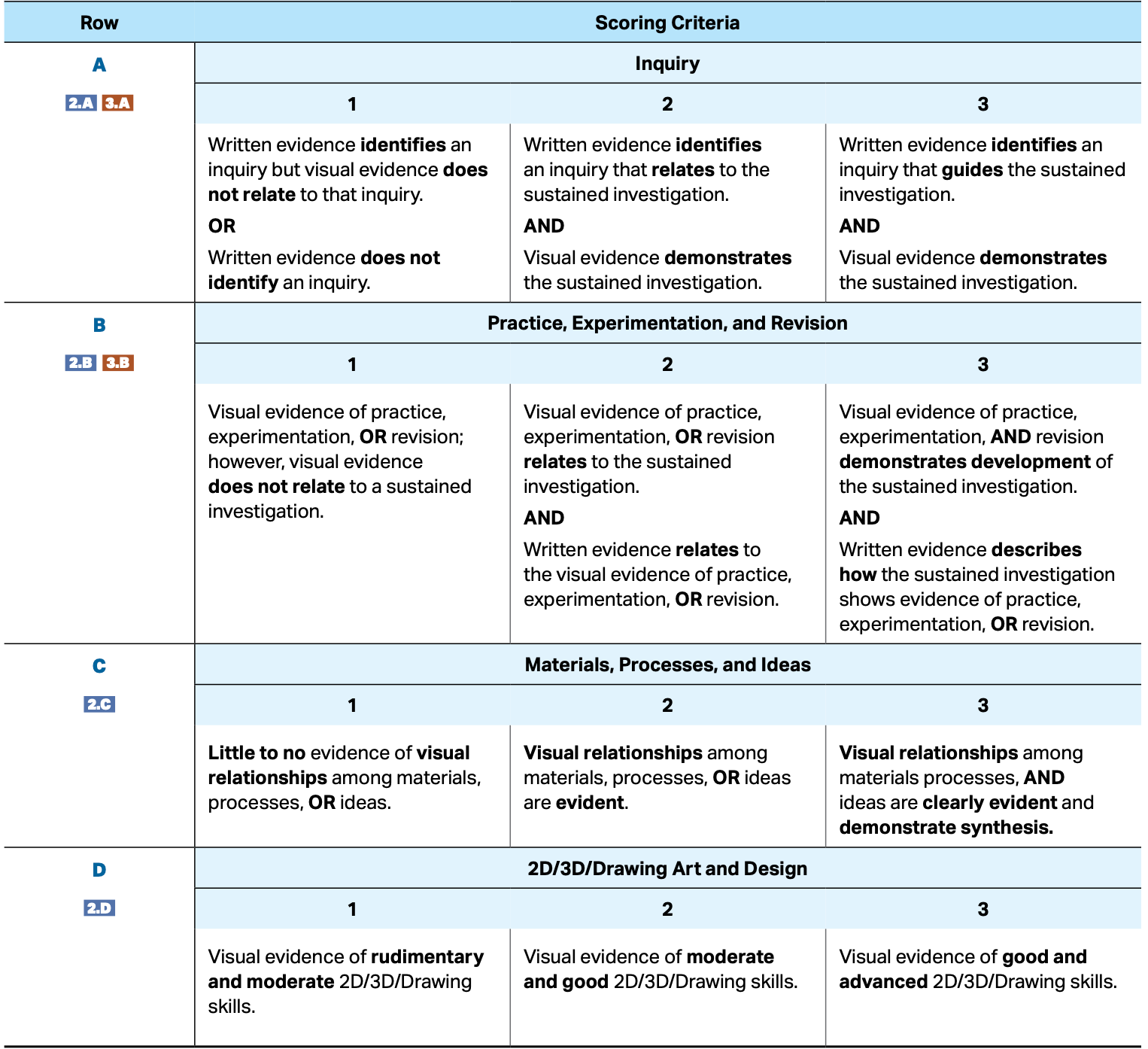Browse By Unit
Sherry Ross
Sherry Ross
Deciphering the AP Art and Design Rubric
There are two parts to your AP Art and Design test, the Sustained Investigation and the Selected Works. Each one of these has a rubric designed for that section that measures specific "requirements and prompts" that you need to successfully demonstrate. The College Board (CB) states that the rubric is "the contract with the student", so it is incredibly important that you understand what they are talking about in it. 😉
I'm going to break these down for you, but here is the College Board site for more information: Selected Works and Sustained Investigation Rubrics.
General Scoring Note
College Board states that: "When applying the rubric, the score for each row should be considered independently from the other rows. Students may receive different scores for each row. When applying the rubric for each individual row, you should award the score for that row-based solely upon the criteria indicated for that row, according to the preponderance of the evidence. "
This means you select the score point achieved for each row. The body of work is graded holistically (as a whole, all together) for each row. There is a formula you have to plug them into to get the credit score for this section. The total score generated by that formula will represent 60% of your score. Please see the row breakdown below - trust me, it gets easier. 🙂
How Is My Work Scored?
The two parts of your portfolio are combined to make your score. The Selected Works portion provides 40% of your score. The Sustained Investigation portion supplies the other 60%. More importantly, the Sustained Investigation is broken down into four sections, and each row, independently, has a portion of that percentage. Here's the breakdown:
- Row A - 12%
- Row B - 18%
- Row C - 18%
- Row D - 12% If you are someone who "likes to do the math", more power to you! 👌🏽 Here's a formula to use to create a rough approximation of your score.

This is not a guarantee of a particular score, but you can use this tool as a way to predictively score your work and figure out where you need to concentrate to move your score as you work. 👍🏽 💯 🙌🏽
The Rubric

<< Hide Menu
Sherry Ross
Sherry Ross
Deciphering the AP Art and Design Rubric
There are two parts to your AP Art and Design test, the Sustained Investigation and the Selected Works. Each one of these has a rubric designed for that section that measures specific "requirements and prompts" that you need to successfully demonstrate. The College Board (CB) states that the rubric is "the contract with the student", so it is incredibly important that you understand what they are talking about in it. 😉
I'm going to break these down for you, but here is the College Board site for more information: Selected Works and Sustained Investigation Rubrics.
General Scoring Note
College Board states that: "When applying the rubric, the score for each row should be considered independently from the other rows. Students may receive different scores for each row. When applying the rubric for each individual row, you should award the score for that row-based solely upon the criteria indicated for that row, according to the preponderance of the evidence. "
This means you select the score point achieved for each row. The body of work is graded holistically (as a whole, all together) for each row. There is a formula you have to plug them into to get the credit score for this section. The total score generated by that formula will represent 60% of your score. Please see the row breakdown below - trust me, it gets easier. 🙂
How Is My Work Scored?
The two parts of your portfolio are combined to make your score. The Selected Works portion provides 40% of your score. The Sustained Investigation portion supplies the other 60%. More importantly, the Sustained Investigation is broken down into four sections, and each row, independently, has a portion of that percentage. Here's the breakdown:
- Row A - 12%
- Row B - 18%
- Row C - 18%
- Row D - 12% If you are someone who "likes to do the math", more power to you! 👌🏽 Here's a formula to use to create a rough approximation of your score.

This is not a guarantee of a particular score, but you can use this tool as a way to predictively score your work and figure out where you need to concentrate to move your score as you work. 👍🏽 💯 🙌🏽
The Rubric


© 2025 Fiveable Inc. All rights reserved.